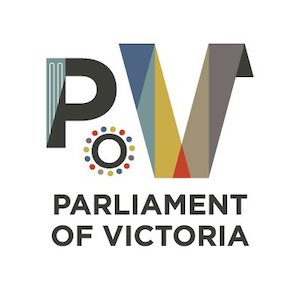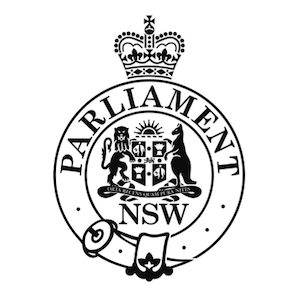We thank the Joint Standing Committee on Electoral Matters for this opportunity to contribute to the inquiry into the provisions of the Referendum (Machinery Provisions) Amendment Bill 2022.
Our submission is focused on the temporary disapplication of section 11 of the Referendum (Machinery Provisions) Act 1984 (Cth). The relevant clause:
Section 11 of the Referendum (Machinery Provisions) Act 1984 does not apply during the period:
(a) beginning on the day this section commences; and
(b) ending on polling day for the first general election of the members of the House of Representatives held after the commencement of this section.
We agree that there is a need to broaden the methods of official communication available to the Commonwealth. There are also legitimate reasons for the Government to spend money in a referendum outside of the scope of what is currently permitted.
The Bill allows the Commonwealth to fund educational campaigns to promote voters’ understanding of referendums and the referendum proposal, and it broadens the available methods of official communication. It does this by suspending limitations on the Commonwealth as is consistent with the 1999 referendum and proposed 2013 referendum.
However, repeated temporary suspensions of the section highlight the need for a permanent solution. The proposed change leaves decisions on educational material to the Parliament and parliamentarians on an ad-hoc basis rather than establishing a permanent, reliable, and publicly trusted process for producing neutral and informative material. Such a solution exists and has been successfully used in several jurisdictions – most notably Ireland (refer to Appendix C for detail).
To address this need:
We recommend that the Bill establish the requirement for a Citizens’ Referendum Review for any future referendum.
The function of this process would be to provide an informational summary to the public including a clear explanation of the proposal, a clear explanation of its context, and summaries of Yes/No arguments. Critically, it would be developed by a ‘jury’ of randomly selected everyday Australians from all walks of life. As judges find juries complementary and fundamental to public trust in the justice system, this similar instrument can be an effective complement to Parliament.
Under the current approach, the intended presentation of Yes and No campaigns will be placed in the hands of active interest groups who have a focus on winning at all costs rather than simply informing the wider population. This creates an incentive for polarising arguments, which in turn fuels distrust, misinformation, and polarisation, and can often ultimately undermine the integrity of the referendum.
The Citizens’ Referendum Review approach would support a less polarising education campaign by involving a new voice (everyday people) and would explore the arguments for and against any proposed constitutional amendment without the negative campaigning incentives present for any active interest.
The Irish Oireachtas (Parliament) was able to advance constitutional reforms in controversial areas including marriage equality and abortion by using a similar approach from which there are clear lessons for Australia as was noted in the House of Representatives Standing Committee on Social Policy and Legal Affairs’ 2021 Inquiry into constitutional reform and referendums.
In its report, The House Standing Committee on Social Policy and Legal Affairs 2021 Inquiry into constitutional reform and referendums said, “that there are valuable lessons that could be learned from both the Irish constitutional reform process and the Uluru dialogues.” (3.86)
The Commonwealth can achieve its goal of a less polarised education campaign and its underlying goal of an informed voting public. 17 million voting citizens will not read complete proposals in detail, but 100 people selected in this method have stronger incentives to do so – and the wider community will be more likely to read their 10-20pg self-written summary.
Any educational communications approach that originates within the Government will face charges of bias that threaten the integrity of the education campaign and the referendum process itself. It is therefore critical that an independent citizen-led process is established to build trust and integrity into the referendum without being an exercise in campaigning and advocacy.
The recommendation in detail: A Citizens’ Referendum Review
Australia should establish the requirement for a Citizens’ Referendum Review which makes use of deliberative democracy principles that can ensure the integrity and public trust of future referendums (Refer to Appendix A for a summary of deliberative democracy principles).
Around the world, Parliaments are making use of citizens’ assemblies to assist them in addressing complex public policy issues. French President Emmanuel Macron recently announced The Citizens’ Convention on the End of Life which will feature 150 French citizens’ providing recommendations on assisted dying laws. The German Bundestag President Bärbel Bas recently announced intentions to establish multiple citizens’ assemblies and the Irish Oireachtas just received the recommendations from their Citizens’ Assembly on Biodiversity.
Picture such a process: 100 everyday Australians, chosen by democratic lottery to be representative of all parts of the country, all walks of life, ages, backgrounds, and lifestyles, being brought together in Canberra over three weekends to find common ground on the question:
What do all Australians need to know about the [insert topic] referendum?
Their role would be to share what they learn in a self-written, plain English informational booklet that is distributed to the wider public. It would include a clear explanation of the proposal, a clear explanation of its context, and summaries of Yes/No arguments.
They would consider the referendum proposal as put to them by Parliament. They would hear from a wide range of expert speakers, advocates, and members of the community (some of whom they would nominate themselves). They would spend time discussing the issues and developing their understanding of the different perspectives in the community. They would ultimately write an information booklet for their fellow citizens. It would be a shared work of people from all walks of life carefully explaining the potential constitutional change in plain language.
A Citizens’ Referendum Review would build trust in the referendum because everyday Australians place their trust in processes that feature people like themselves in key roles. It would be independent of Government and so addresses easy objections to any Government-led education campaign.
If the Parliament chooses to pass the Bill in its current form, our recommendation is that it still opts to establish a Citizens’ Referendum Review for any referendum held in this term. This would demonstrate the efficacy of such a body, support the integrity of any referendum and provide an example for future amendments to the Act.
We are happy to respond to your questions and appear before the Committee if requested. We appreciate your time considering this submission.



